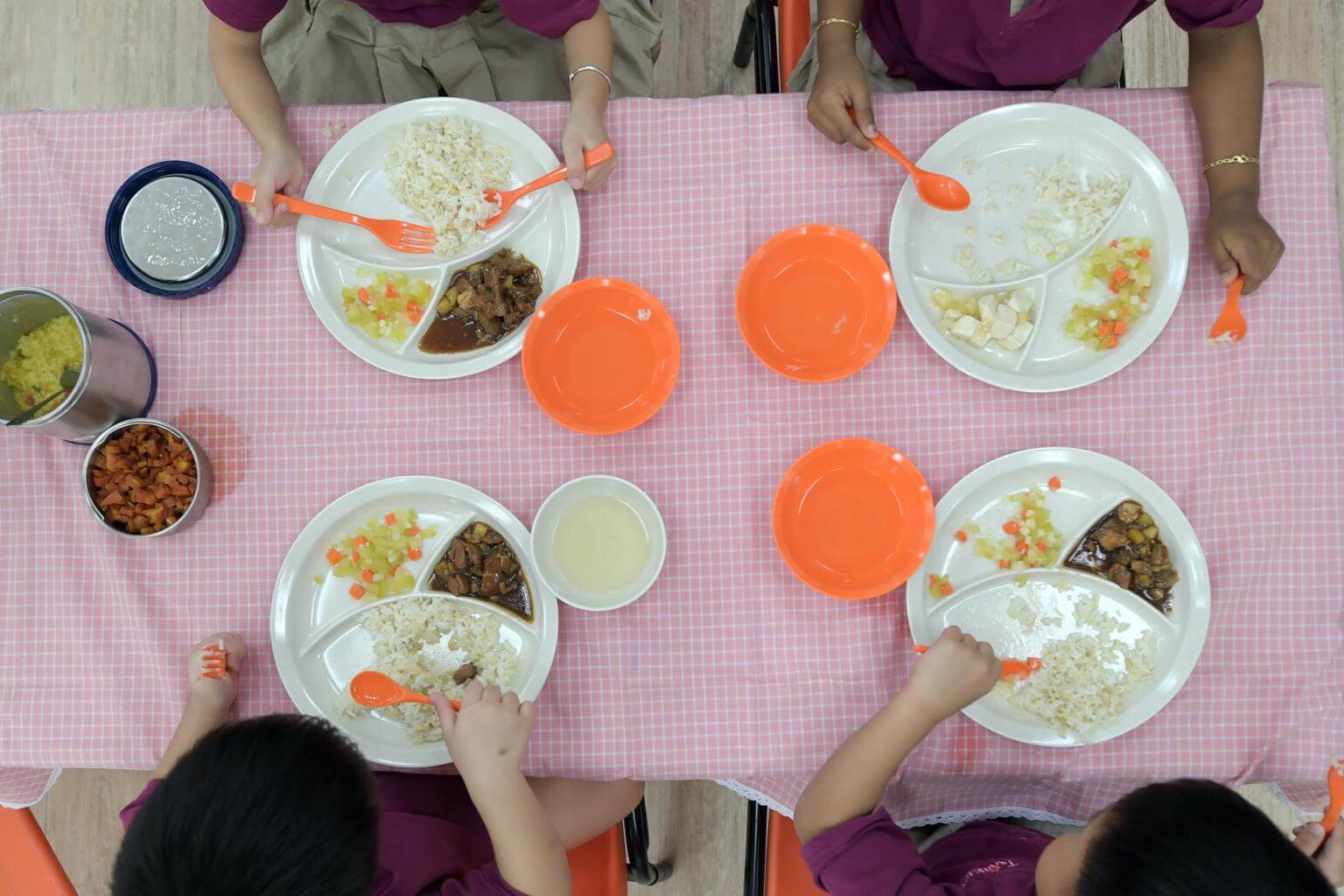Enhanced measures to ensure better diets in pre-schools
Children with developmental delays among those who deserve extra attention: Tharman
Sign up now: Get ST's newsletters delivered to your inbox

Whole grains, fruit and vegetables are already being served in pre-schools, while sugary drinks and deep-fried food are not allowed.
PHOTO: ST FILE
Ng Huiwen
Follow topic:
To ensure that more children adopt healthy eating habits in their early years, the Government will progressively tighten the nutritional content requirements in food served in pre-schools, said Deputy Prime Minister Tharman Shanmugaratnam.
Already, whole grains, fruit and vegetables are being served in pre-schools, while sugary drinks and deep-fried food are not allowed, following enhancements to the nutritional requirements early this year.
But more can be done, as pre-school is an opportunity to shape the tastes and preferences of children, Mr Tharman said at a dinner to mark the 160th anniversary of KK Women's and Children's Hospital (KKH) on Saturday.
This is part of broader efforts to give every child a good start, with healthcare institutions such as KKH already playing an integral role in bringing care into the community, he said.
In his speech, Mr Tharman touched on the importance of a child's early years in enabling him to achieve his full potential in life.
"Our early interventions will also help in our broader efforts to keep social mobility alive in Singapore," he said.
Children with developmental delays are among those who deserve additional attention, he added.
To better cater to the varying needs of this group, the Ministry of Social and Family Development (MSF) plans to further increase support for them in mainstream pre-schools.
The ministry is exploring an enhanced Development Support programme, which will allow children who have made sufficient progress in centres running the Early Intervention Programme for Infants and Children (EIPIC) to continue to receive support in their pre-schools.
EIPIC provides therapy services for children under the age of seven with moderate to severe developmental problems.
Having an enhanced Development Support scheme will enable early-intervention professionals to support and co-teach the child alongside the pre-school teacher.
The scheme began in 2009 as a pilot initiative by a group of KKH professionals, and was later adopted and expanded by MSF in 2013.
It aims to help children with mild developmental needs improve in areas such as in their language, literacy and social skills.
The ministry will also be setting out clearer guidelines for service delivery across EIPIC providers.
The Government will also strengthen efforts to help children from low-income families and vulnerable backgrounds get a leg up.
A focal point in these efforts is the KidSTART programme, which was launched in July 2016, and has received encouraging feedback so far. It was built on an earlier 2014 programme by KKH to provide health and social support to mothers and babies from vulnerable families.
"Parents feel better supported and are more confident in their parenting skills," Mr Tharman said. However, he added that "this will be a journey that we will stay on for the long term, with a lot of learning along the way".
In his speech, Mr Tharman also touched on how KKH, as a veritable Singapore institution, has embarked on its strategies for the future. These include finding innovative ways to keep healthcare affordable, such as implementing tele-consultation, and helping patients stay healthy in the first place. KKH was founded in 1858 as a general hospital, and became a maternity hospital in 1924.

